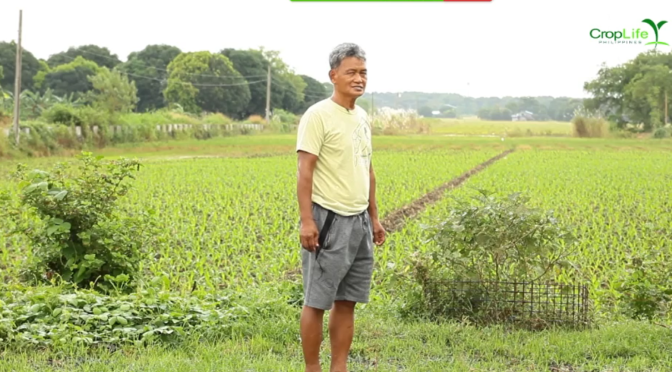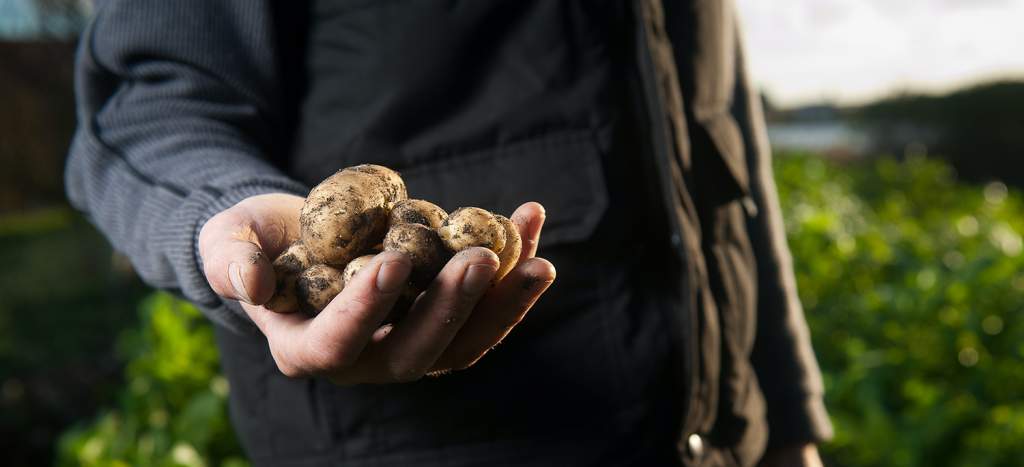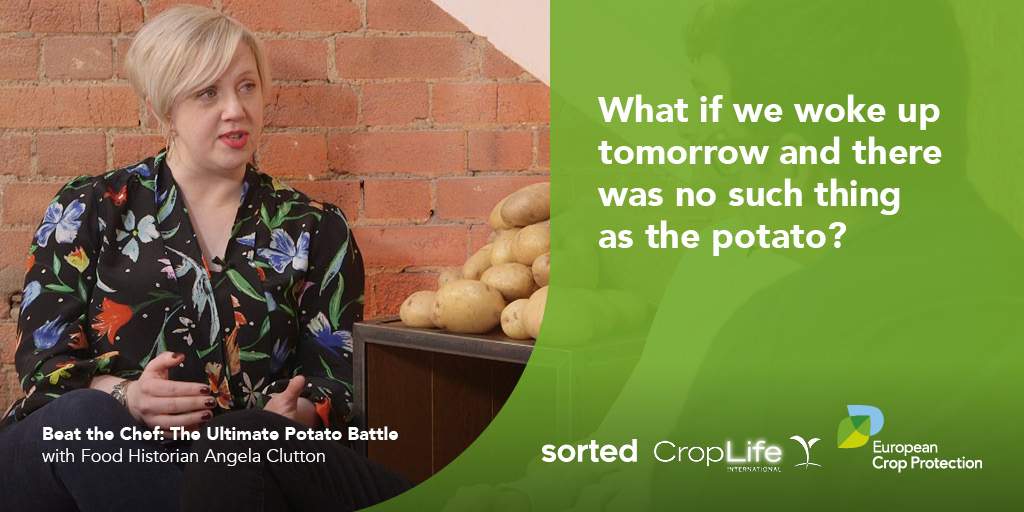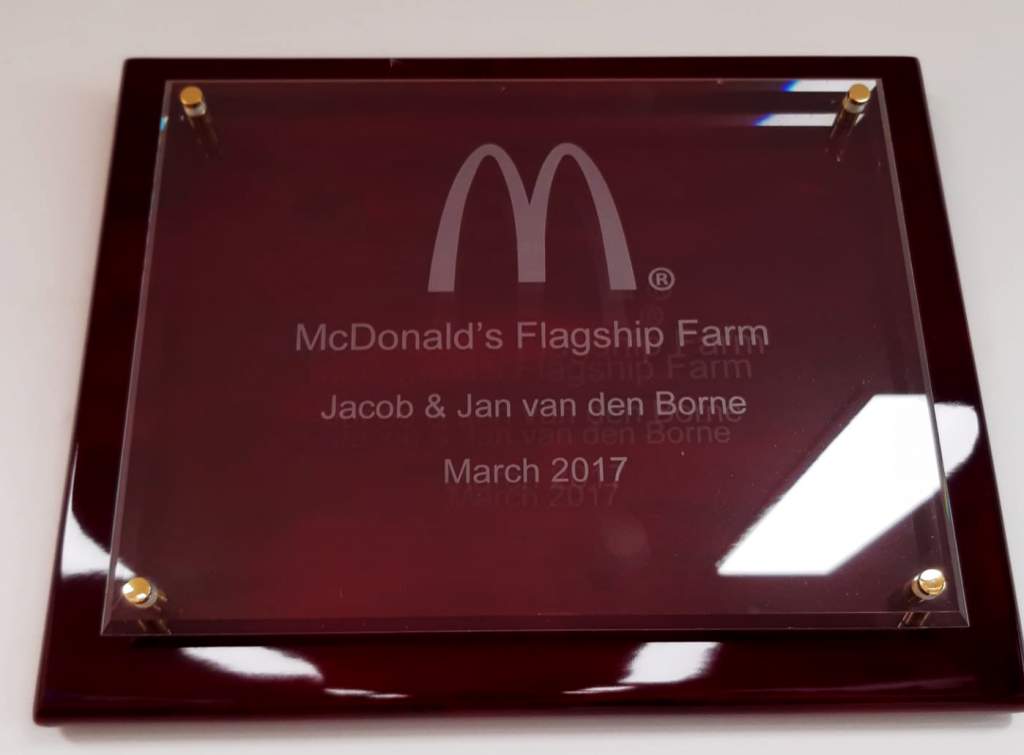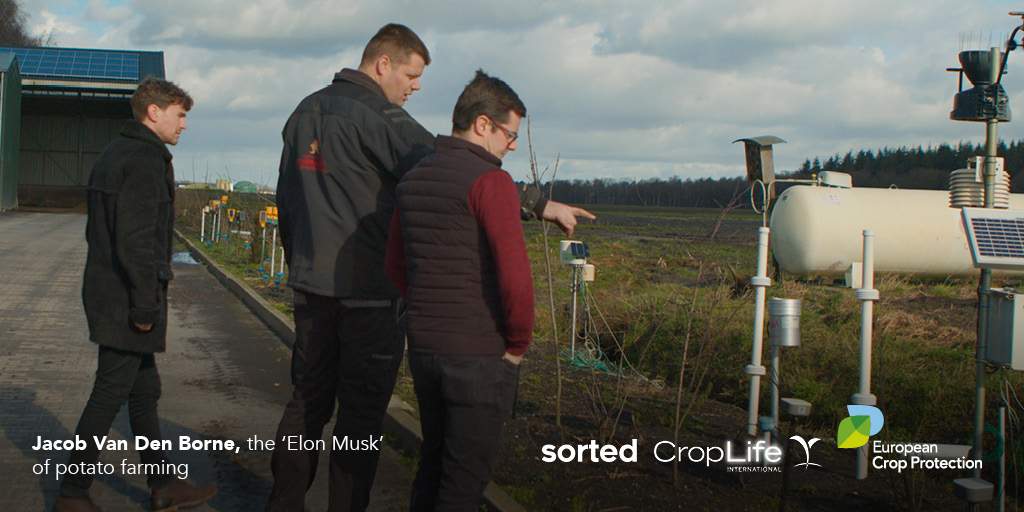By: CropLife International
The amount of food lost or wasted every year presents countless problems for society, such as threatening food insecurity, and recent events have highlighted how serious this can get.
But what do we mean by ‘lost’ and ‘wasted’, how exactly can it increase the risk of food insecurity, and how can plant science help reduce food loss and waste?
Here, we explore the difference between these terms and find out what is being done to make the most of our food supply.
The difference between food loss and food waste
Food loss and food waste both refer to food supply that drops out of the ‘farm-to-table’ cycle at different stages.
- Food loss = anything involving the growers, farmers and suppliers up to the point where it becomes available to buy.
- Food waste = anything from this point onwards, including shops, supermarkets, restaurants and consumers.
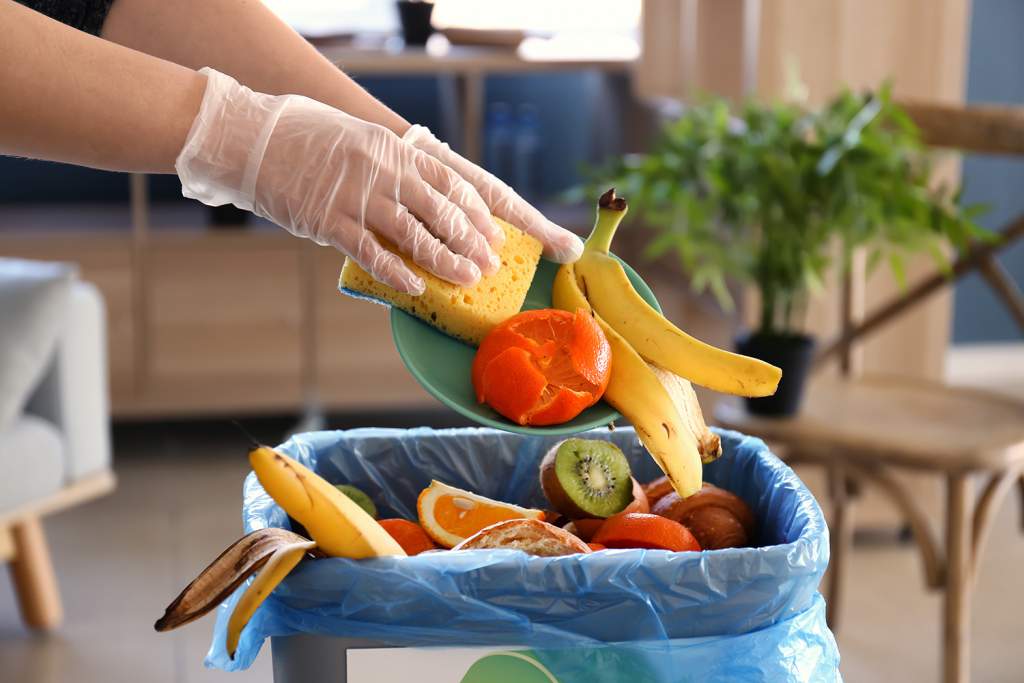
How does this threaten food security?
Food loss is a particular problem in developing nations, where weaknesses in supply chains are more common.
A functional supply chain is crucial to ensuring food reaches the destinations that rely on it most. If a food supply chain breaks down, whether it’s from reduced harvests or insufficient storage or the inability to pack and transfer goods along the cycle, consumers might experience food shortages or fluctuations in food prices. For the most vulnerable communities, they might suffer from food insecurity. This is exacerbated during unexpected events, for example pandemics, due to a variety of factors including reduced availability of land and supply of workers.
Professor of food policy at City University in London, Tim Lang has just published a book exploring food waste and security in detail – Feeding Britain: Our Food Problems and How to Fix Them. We interviewed him at the beginning of the month and he stresses that, “Food security is a complicated issue that is about more than just quantity or tonnage of food.
“It touches on issues of food supply, to notions of self-sufficiency, security, risk and resilience – which is about the capacity of systems to bounce back when they’ve suffered shocks.”
Tackling food loss
A planted field is the first place in the supply chain where food loss can occur. Drought is a major contributor to the problem, and caused 83% percent of all global crop losses and damage between 2006 – 2016.
Looking more specifically at the developing world, up to 50% of all crops are lost to pests, crop diseases or post-harvest losses. Natural disasters can also be devastating for farmers in developing countries. Between 2005 and 2015, farmers lost around $96 billion worth of crops and livestock as a result of floods, tsunamis, and other catastrophic events.
According to the UN’s food loss index (FLI), on average, 14% of the world’s food is lost between the post-harvest and consumer stages due to issues like inadequate storage or transit facilities, or even human error. These losses vary by region – in central/southern Asia, it’s 21%, while in Australia and New Zealand, it’s just 6%.
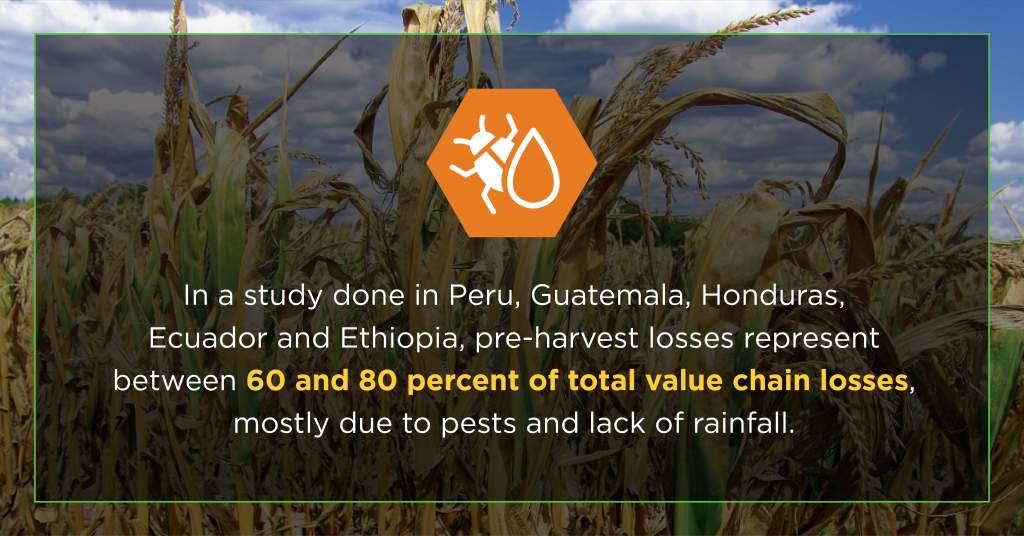
Professor Lang also highlights the divide between food loss and food waste in the developed and developing worlds, saying, “There’s a rich-world pattern of food waste that is very different from the poor-world pattern.
“In the poor world there is large amounts of loss on or near farms because of poor storage, poor facilities, poor farmer capacity, and poor logistics to get the food off their land to urban settlements.”
Losses would be much worse if farmers couldn’t utilize innovations in plant science. Crop protection products, for example, provide the world’s crops with vital protection against insects, diseases and weeds during production and harvest. Without them, global crop losses would double each year.
Biotech crops help to prevent pre-harvest losses by protecting against threats such as plant diseases and pests like insects, which can cost farmers 60-80% of their yield in some regions.
This creates profound, life-changing opportunities in developing regions. For example, Asia is an emerging region for biotech, with eight Asian countries planting GM crops in 2018. GM crops have been shown to increase average yields by 22%, and profits by 68%, which can help farmers put food on the table, or send their children to school.
What about food waste?
Food waste contributes to about 8% of global greenhouse gas emissions, and can cause as much damage to our planet as plastic waste.
Food is often deemed unfit for sale by supermarkets for no other reason than it is the wrong shape, size or color – for example, apples not being red enough. Supermarkets occupy a large portion of the supply chain in many countries and food waste at these outlets can create a considerable impact. In the UK, where big retailers represent 85% of the market share, a reported 25% of apples, 20% of onions and 13% of potatoes are wasted for cosmetic reasons.
This is not the only source of commercial food waste. According to Winnow, a tech firm that creates food waste technology, restaurants can waste as much as 12% of their total food spend. And National Geographic says in a crisis where restaurants schools, caterers, corporate cafeterias and farmer’s markets are forced to close, farmers face a huge supply issue because there is nowhere for their highly perishable produce to go.
Consumers, meanwhile, often throw food away because it has reached the ‘best-before’ date, even though it is still fit for consumption, as they often confuse the ‘best before’ and ‘use by’ labels. Also, a lot of food goes to waste simply because households buy too much and then don’t have time to eat it all.
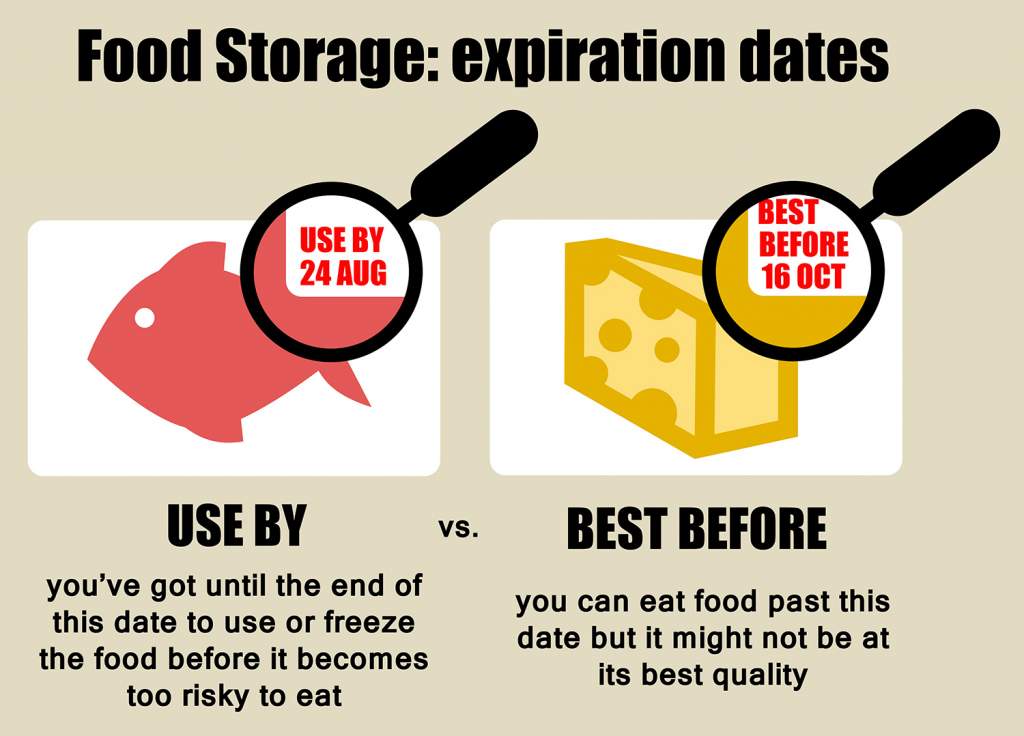
Professor Lang, however, highlights that, “In a country like Britain or the U.S., there is staggering waste at the consumer level, but that is sometimes blamed on consumers. I’m not saying consumers aren’t in some way responsible, but this problem has exposed that actually there is an avalanche of food. There is no shortage of food, in fact, there is a problem with over-production.”
He also, stresses that the worth consumers attach to food has an impact on patterns of waste, saying, “High domestic expenditure values food, but cheap food devalues it.”
Challenging the issue of waste
There are lots of ways to combat food waste, from government plans to the actions of private companies and everyone being more conscious of the amount of food they eat and store.
In Australia, where food waste costs the economy $20 billion each year, the government has introduced the National Food Waste Strategy, supporting collective action to halve food waste in the country by 2030. This will include an initial $1.3 million of funding to implement a strategy that engages Australian businesses and encourages them to commit to reducing food waste.
Tesco, the UK’s biggest supermarket chain, announced a 17% drop in food waste in 2018/19 after implementing plans to distribute surplus food to staff, charities and community groups.
Consumers are embracing technology as a way to cut down on their food surpluses. Olio, a free food-sharing app which connects neighbors and local shops to stop any surplus food being thrown away, is being used in more than 30 countries worldwide.
In the U.S., some companies – like Imperfect Foods – take surplus and ‘imperfect’ food items from farmers, growers, and food purveyors and deliver them to customers at a discount.
“These imperfections are often small quirks in appearance – too big, too small, too curvy, off color – that don’t impact the flavor or nutrition,” explains Philip Behn CEO of Imperfect Foods. “When perfectly good grocery items are close to expiration or going through packaging changes, grocers won’t purchase or stock those goods.”
Imperfect Foods is able to take this situation and turn it into a win-win for consumers and stores. This model has helped the company save 100 million pounds of food from going to waste since it was founded in 2015.
The actions of everybody in the production cycle, from farmers to consumers, will make the difference in global attempts to meet the United Nations Sustainable Development Goal 12, which includes halving global food waste by 2030.
Behn adds: “Between the environmental impact as well as inefficiencies for hardworking farm partners and food producers, we need to drive food waste down so we can build a better food system.”
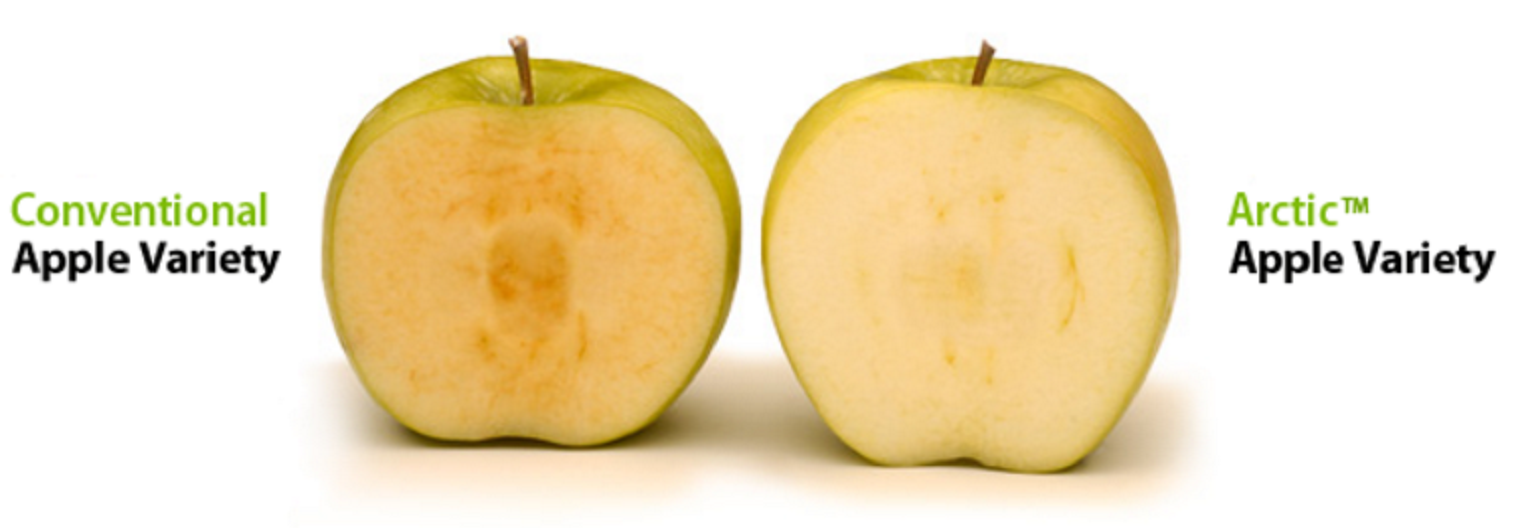
These efforts have a vital ally in plant science, which is already tackling food loss and world hunger. A great example is Arctic Apples, developed in the U.S.. These apples cut food waste by browning at a much slower rate and therefore are less likely to be thrown away. It’s an ideal solution in a country where the demand for ‘perfect’ fruit and vegetables means that half of all produce is thrown away.
But this is just the beginning. If developed nations truly embrace the power of plant science, they will find a wealth of ways to contribute to global food security.
This content was taken from CropLife International website. You may check the link here.

